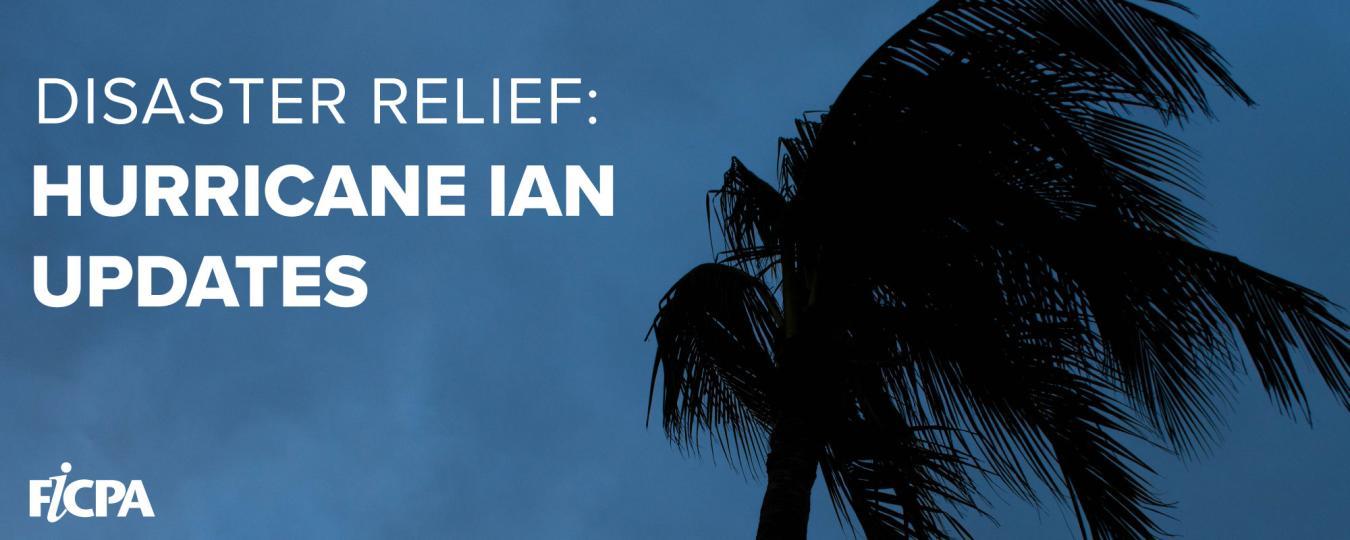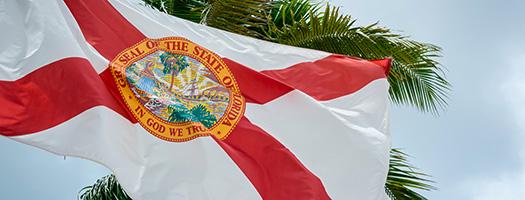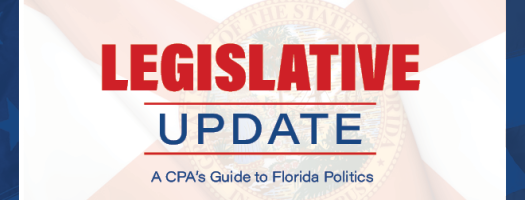
Florida residents dealing with the aftermath of Hurricanes Ian and Nicole are discovering that the federal tax treatment of casualty losses from Hurricanes Ian and Nicole is not as expected. Unpleasant tax surprises are adding to the complexities and uncertainties associated with the hurricane recovery process.
Casualty losses are defined in Internal Revenue Code Section 165. The tax treatment of disaster losses has been revised five times since 2017 as follows:
- Disaster Tax Relief and Airport Extension Act of 2017
- Tax Cut and Jobs Act
- Bipartisan Budget Act of 2018
- Taxpayer Certainty and Disaster Tax Relief Act of 2019
- Taxpayer Certainty and Disaster Tax Relief Act of 2020 (TCDTRA 2020), which was enacted as part of the Consolidated Appropriations Act of 2021 (CAA 2021).
Most Florida practitioners and taxpayers are familiar with the tax treatment allowed for Hurricane Irma casualty losses. This special treatment was allowed for casualty losses incurred only for Hurricanes Harvey, Irma, and Maria in 2017. The legislation was included in the FAA Reauthorization Act of 2018.
Hurricanes Ian and Nicole casualty losses are governed by the most recent revision to the tax treatment of disaster losses, contained in the Taxpayer Certainty and Disaster Tax Relief Act of 2020 (TCDTRA 2020), which was enacted as part of the Consolidated Appropriations Act of 2021 (CAA 2021). The provisions of TCDTRA 2020 are not part of the Internal Revenue Code, but are nonetheless Federal tax law and thus must be followed in the preparation of federal tax returns affected by Hurricanes Ian and Nicole. This nuance creates complexities for both practitioners and taxpayers.
TCDTRA 2020 provides special rules for “qualified disaster losses.” The special rules include:
- Waiver of the 10% of AGI limitation.
- Increased per-casualty floor of $500 (vs the standard $100).
- Addition of a casualty loss deduction to the individual’s standard deduction.
Per IRS Publication 547, a “qualified disaster loss” is an individual's casualty and theft loss of personal-use property that is attributable to:
- A major disaster declared by the President under section 401 of the Stafford Act in 2016;
- Hurricane Harvey;
- Tropical Storm Harvey;
- Hurricane Irma;
- Hurricane Maria;
- The California wildfires in 2017 and January 2018;
- A major disaster that was declared by the President under section 401 of the Stafford Act and that occurred in 2018 and before December 21, 2019, and continued no later than January 19, 2020 (except those attributable to the California wildfires in January 2018 that received prior relief); and
- A major disaster that was declared by Presidential Declaration that is dated between January 1, 2020, and February 25, 2021 (inclusive). However, in order to qualify under this expansion, the major disaster must have an incident period beginning between December 28, 2019, and December 27, 2020 (inclusive). Further, the major disaster must have an incident period ending no later than January 26, 2021. A qualified disaster does not include those losses attributable to any major disaster which has been declared only by reason of COVID-19.
Hurricanes Ian and Nicole occurred after the TCDTRA 2020 window for the special rules; therefore, losses from these hurricanes do not meet the definition of “qualified disaster loss.” As a result, taxpayers with losses from Hurricanes Ian and Nicole are currently subject to less favorable tax treatment, since only “qualified disaster losses” are eligible for a waiver of the 10% AGI limitation and for deduction without itemizing other deductions on Schedule A of Form 1040.
Federal legislation is required to grant the “special rules” to disaster losses attributable to losses from Hurricanes Ian and Nicole.
In addition, the IRS allowed those affected by Hurricanes Harvey, Irma, and Maria to use safe harbor cost index tables contained in Revenue Procedure 2018-09 to compute casualty losses. No similar authority is available at this time for Hurricanes Ian and Nicole. FICPA has corresponded with IRS in an effort to receive this same treatment (FICPA Letter to IRS November 2022). There has been no response to the FICPA request.
FICPA members will be asked to participate in Federal legislative initiatives to request relief for Florida taxpayers with losses from Hurricanes Ian and Nicole, including a waiver of the 10% AGI limitation.


